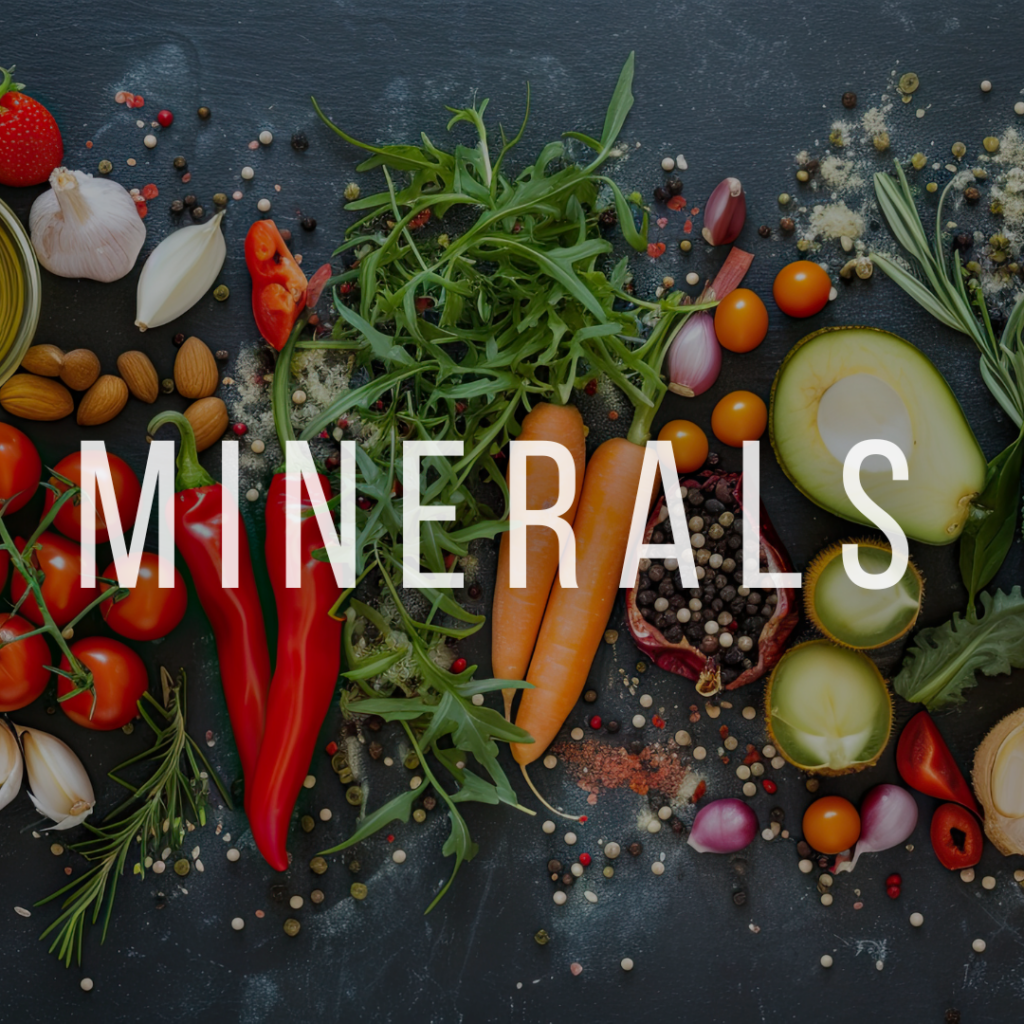Balanced Nutrition 101: The Basics of Micronutrients (Pt 2)
We’ve already covered the importance of macronutrients, carbohydrates, proteins, and fats, as the essential building blocks that fuel our bodies, make up our structure, and support overall health. Getting the right balance of these macronutrients is key to staying energized and strong. But that’s just part of the equation. The quality of the macronutrients you consume also impacts your intake of micronutrients, the vitamins, minerals, and antioxidants necessary for boosting our immune system, supporting bone health, and regulating metabolism. Together, macronutrients and micronutrients work in harmony to keep our bodies functioning at their best.
Vitamins and minerals are needed in smaller quantities than macronutrients, but they are essential for supporting your metabolic processes such as hormone production, cell signaling, and DNA function. Without adequate levels of these micronutrients, your body won’t function at its best. Whether we realize it or not, we are truly a reflection of what we eat. Remember: if it’s not nourishing you, it’s draining you.
The Small but Mighty Nutrients
The daily nutrient requirements can vary based on factors such as gender, age, and life stage. For instance, women who are pregnant or lactating have higher nutrient needs compared to those who are not, and these needs also differ from those of men. Nutrient intake is commonly measured in micrograms (µg), milligrams (mg), or International Units (IU) to ensure accurate recommendations based on individual needs.
Vitamins:
There are thirteen essential vitamins, and they fall into two categories: water-soluble and fat-soluble. Water-soluble vitamins, like all the B vitamins and vitamin C, are absorbed with water and are excreted daily through urine and sweat. This means you need to replenish them regularly to keep your body’s stores topped up. On the other hand, fat-soluble vitamins, including vitamins A, D, E, and K, are absorbed with fat and stored in your liver and fat tissue for future use. Because of this, you don’t need them as frequently, but they are still vital for maintaining your overall health and supporting important bodily functions. Vitamins, produced by plants and animals, are more delicate than minerals and can break down when exposed to heat, air, or acid.

There are thirteen essential vitamins, and they fall into two categories: water-soluble and fat-soluble. Water-soluble vitamins, like all the B vitamins and vitamin C, are absorbed with water and are excreted daily through urine and sweat. This means you need to replenish them regularly to keep your body’s stores topped up. On the other hand, fat-soluble vitamins, including vitamins A, D, E, and K, are absorbed with fat and stored in your liver and fat tissue for future use. Because of this, you don’t need them as frequently, but they are still vital for maintaining your overall health and supporting important bodily functions. Vitamins, produced by plants and animals, are more delicate than minerals and can break down when exposed to heat, air, or acid.
Minerals:

There are fourteen essential trace minerals that are vital for your body’s proper function. These minerals are divided into two categories: major minerals and trace minerals. Major minerals, like calcium, chloride, magnesium, phosphorus, potassium, and sodium, are needed in larger amounts, usually 100mg or more daily. You may also recognize these as electrolytes, which play key roles in fluid balance and muscle function. On the other hand, trace minerals, like chromium, copper, fluoride, iodine, iron, manganese, selenium, and zinc, are required in smaller amounts, usually less than 100mg a day. In contrast to vitamins, minerals come from soil and water and maintain their chemical structure even when exposed to air, heat, or acid. All minerals need to be replenished daily to ensure your body has optimal stores for peak performance.
To preserve nutrients, try eating fresh foods, using cooking methods that retain their vitamins and minerals, and storing your foods properly.
The Power of Food and Smart Supplementation

Eating a variety of colorful fruits and vegetables, whole grains, and animal-based foods is a fantastic way to get your essential micronutrients! These nutrients are found in a wide range of foods, making it easy to meet your daily requirements unless you’re eliminating entire food groups or macronutrients from your diet. In such cases, supplementation can help fill any gaps and ensure you’re getting the nutrients you need. Although supplementation isn’t recommended as your sole source of nutrients, it can be helpful in bringing you back to optimal levels when needed. It’s also crucial to be mindful of which supplements you choose, as not all products on the market are made with high-quality ingredients. Keep in mind that it’s easy to overconsume supplements, having too much or too little of a nutrient can be harmful. Finding the right balance that works for you is essential to stay on track with your health goals.
Well, How Much is Enough?
In case you weren’t aware, the National Academy of Medicine (formerly the Institute of Medicine) is responsible for setting the Daily Recommended Intake (DRIs) for vitamins and minerals. These guidelines are designed to help us maintain a balanced diet and are used to create food recommendations. The DRIs are specific to age, gender, and life stage, covering over 40 essential nutrients. They’re based on research into nutrient deficiencies and toxicity, ensuring that the guidelines are grounded in science to promote overall health and well-being. It can be challenging to remember all of the nutrients you need to take, so here is a cheat sheet for you!
Finding Your Perfect Balance of Micronutrients
By understanding how vitamins and minerals support your body, you can make informed choices that enhance your health and vitality every day. If you’re ready to dive deeper into your unique micronutrient needs and understand your daily requirements, schedule a consultation with the nutritionist at Tucson Wellness MD. Let’s work together to make nutrition easier, more accessible, and tailored to your needs!
STAY CONNECTED – STAY HEALTHY